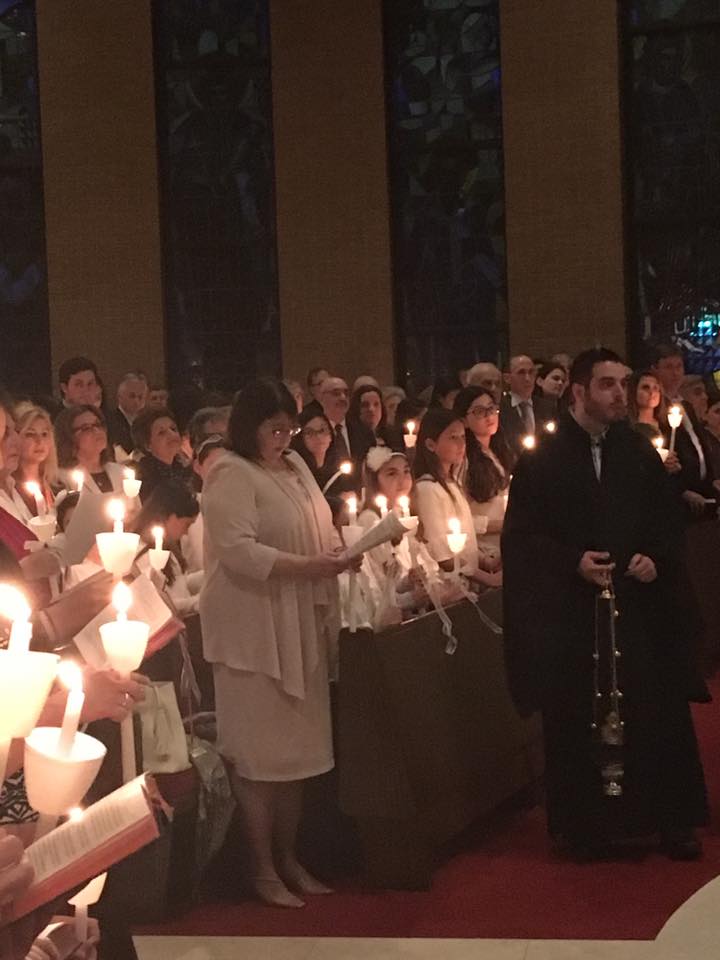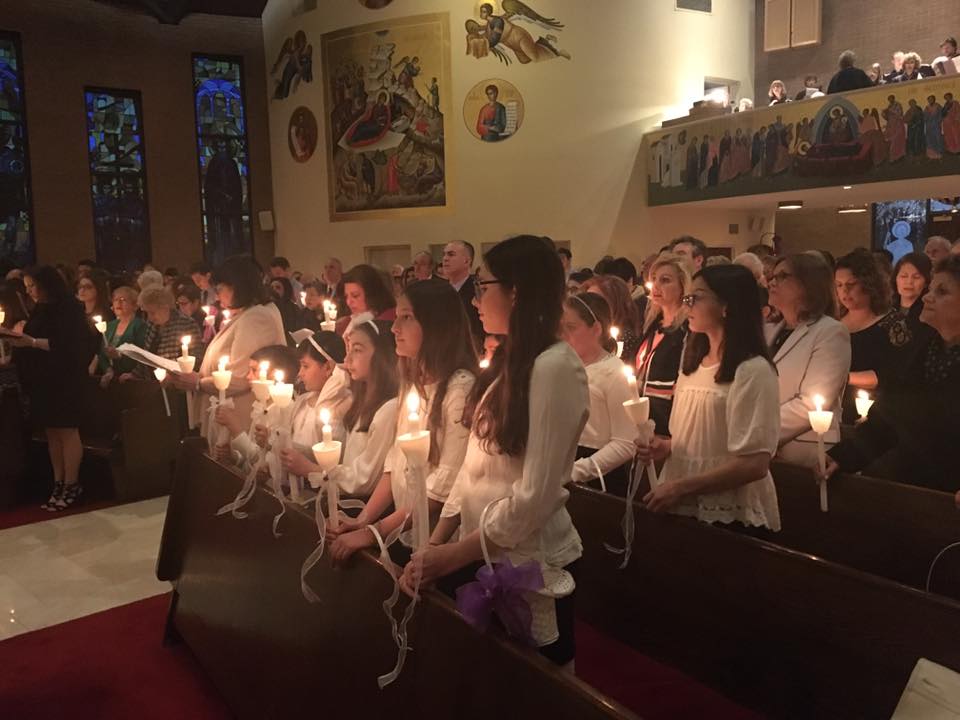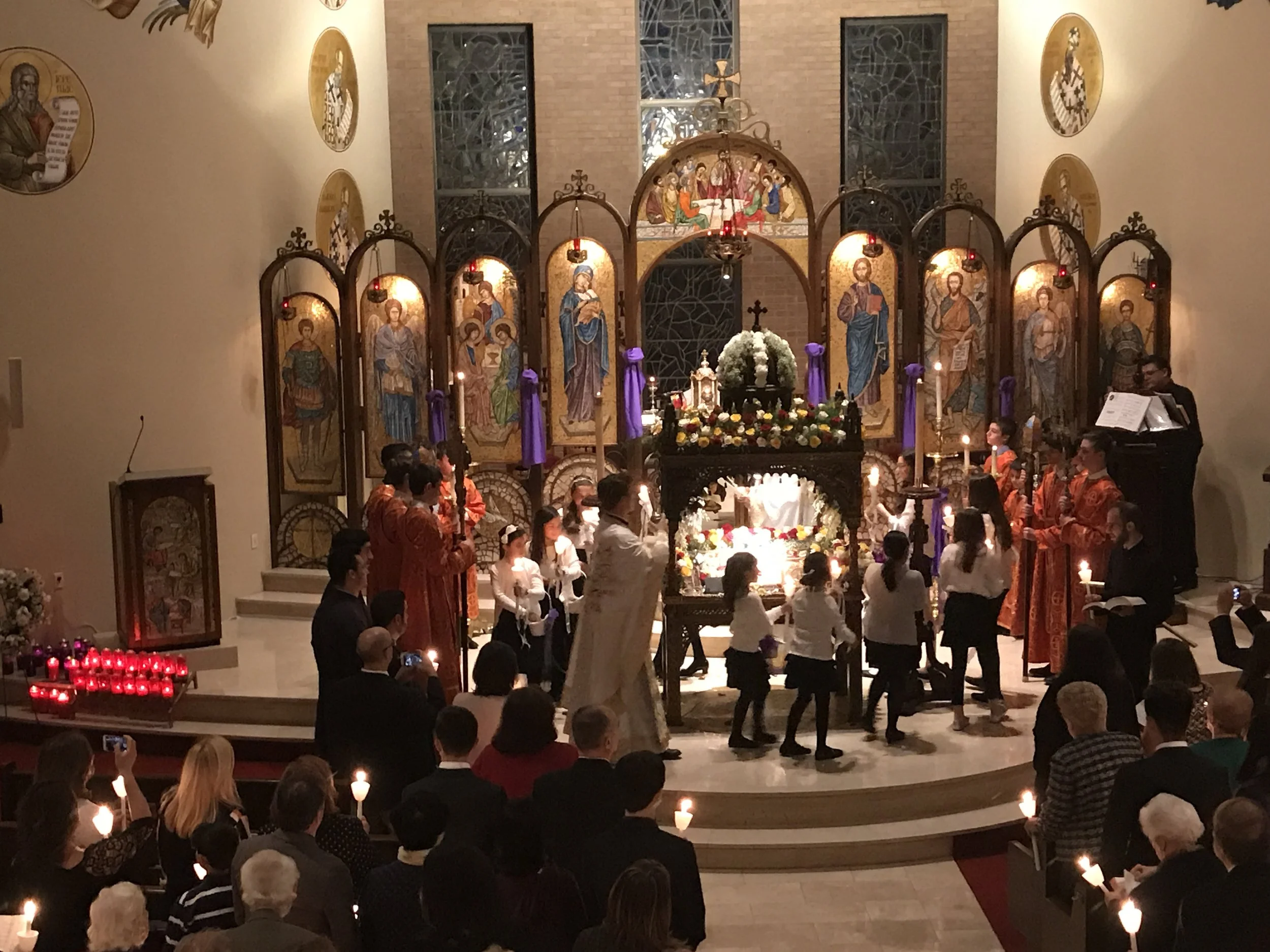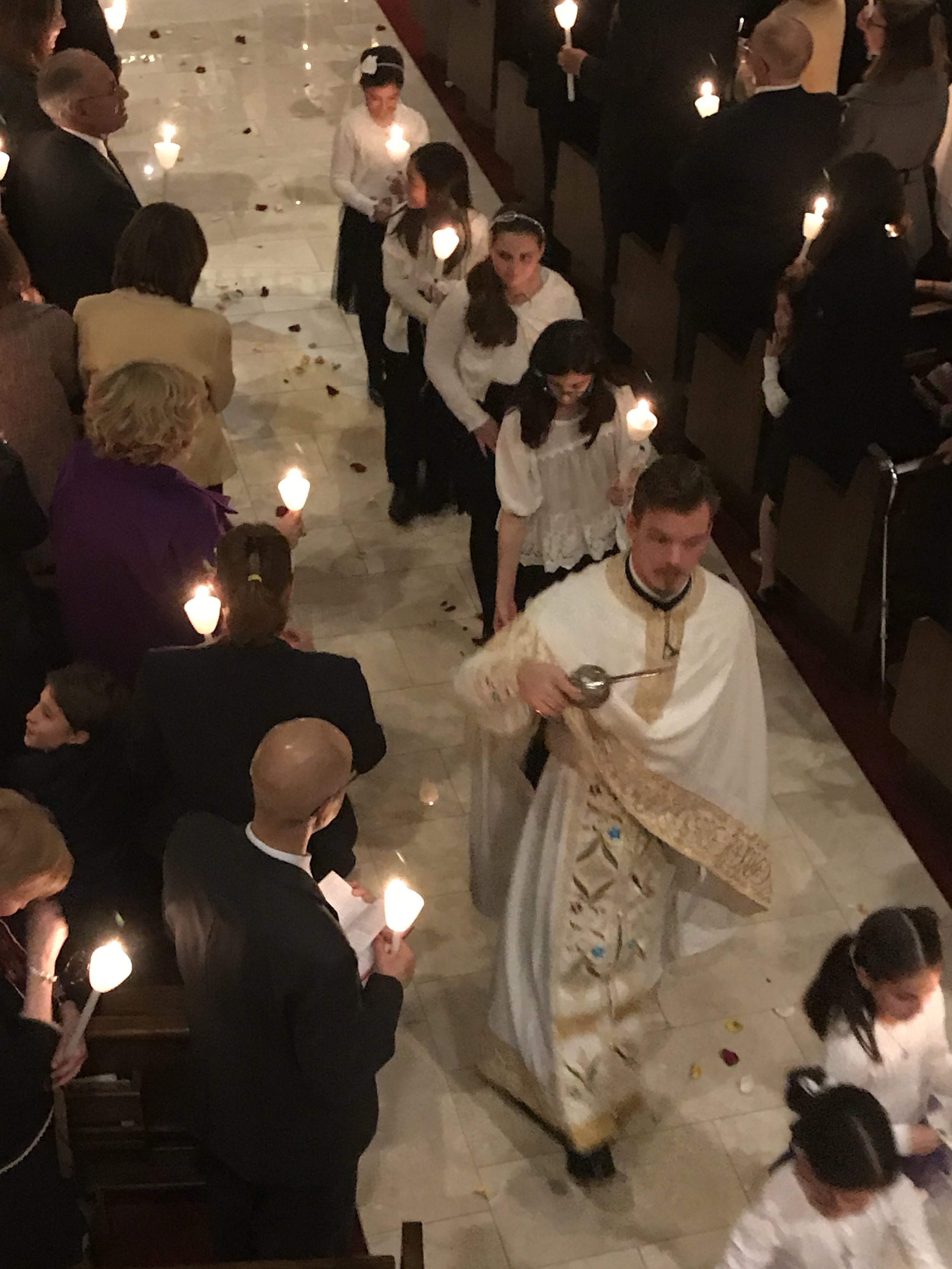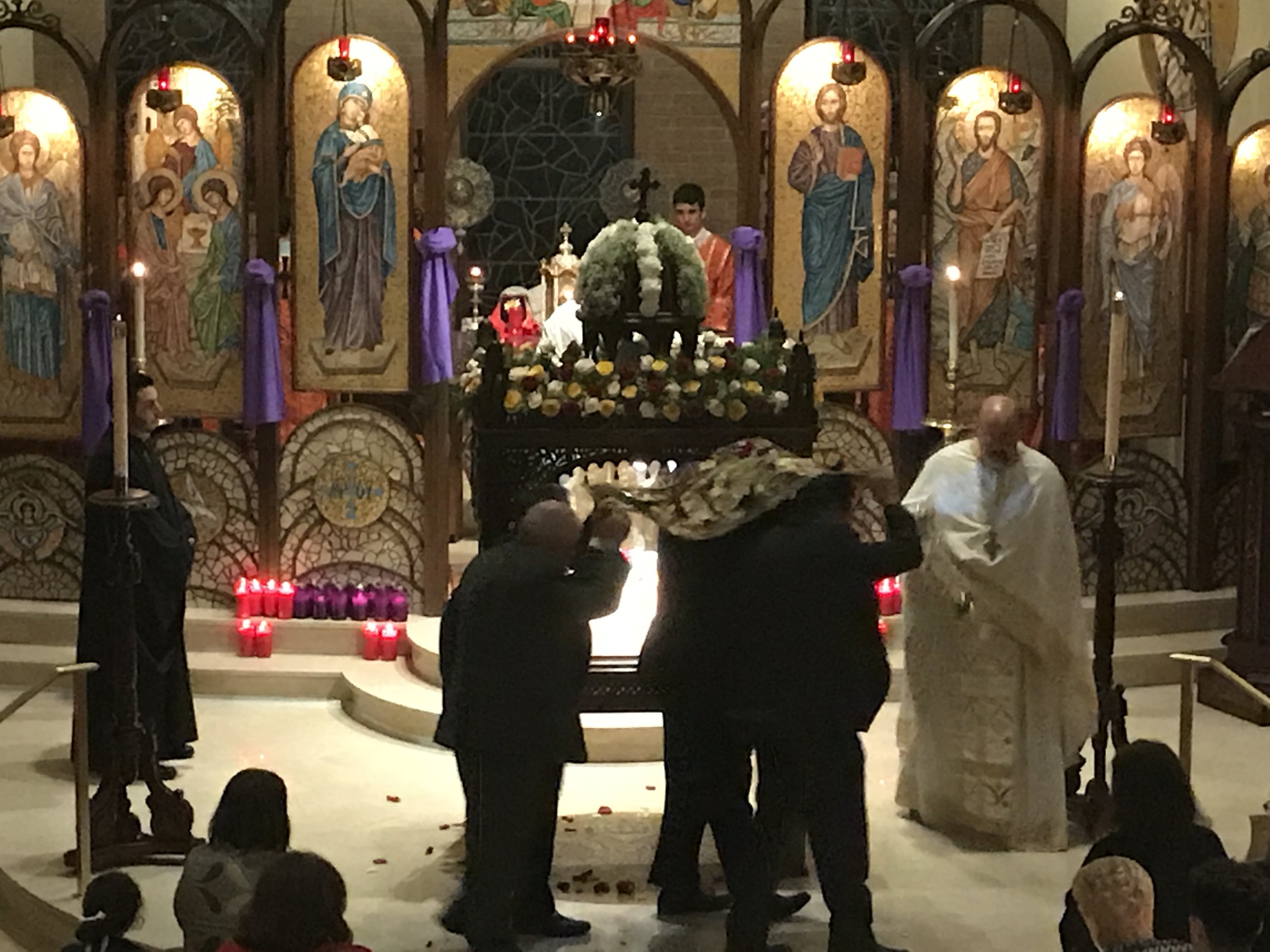Significance of this Service
Source: Goarch.org
"Do not weep for me, but weep for yourselves..."
(The service is Matins of Saturday morning sung by anticipation, on Friday evening.)
It consists of psalms, hymns, and readings dealing with the death of Christ, in contrast to His divinity, and in expectation of His Resurrection. One of the hymns relates: "He who holds all things is raised up on the Cross and all creation laments to see Him hang naked on the Tree." The thoughtful and well-written Odes, sung by the choir, compare the Compassion of God and the cruelty of man, the Might of God and the moral weakness of man. The Odes picture all Creation trembling when witnessing its Creator hung by His own creatures: "Creation was moved...with intense astonishment when it beheld Thee hung in Golgotha." The Odes remind us of the vision of Isaiah, who saw Christ, "the unwaning light of the manifestation," and cried aloud, "The dead indeed shall arise and all those on earth shall rejoice." During this service, the Body of Christ is carried in procession around the church. In some parishes, the entire flower-bedecked Sepulcher, symbolizing the Tomb, is carried in the procession.
The entire congregation joins in singing the three parts of the "Hymns of Praise" (there are approximately 300 hymns, but only a few are sung). After these hymns are sung, the priest sprinkles the Sepulcher and the whole congregation with fragrant water. There is a simultaneous praise of both the Crucifixion and Resurrection of Christ with their purpose of the redemption of man. We no longer lament the sufferings of the Crucified One; we now lament chiefly for our own sins because we are far from God. So these services should have a rather personal meaning of repentance and of strong faith in God.
Christians observe Good Friday with fasting, prayer, cleanliness, self-examination, confession, and good works, in humility and repentance so that the Grace of the Cross might descend upon them.
The Gospel reading is Matthew 27:62-66.









